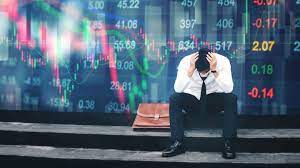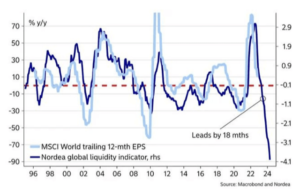Inflation and the Rise of Monopolies

Bill Bonner predicted the inflation we are experiencing now many times over the past year or two. His prognostication was based on basic economics: He watched how the Fed was trying to engineer the supply and demand of dollars.
It all happened pretty much as it should have happened,” he said in the Jan. 10 issue of Bonner Private Research. And then he noted that the people that support government overspending, including the government and the mainstream media, are not accepting responsibility for their machinations. They are pointing fingers elsewhere.
“They aim to distract your attention from what is right before your eyes,” he wrote. “They claim ‘capitalism failed’ or ‘corporate greed’ suddenly imposed itself or, for those with no ax to grind, simply that there were ‘supply chain interruptions.’”
As an example, Bill quoted an article in The Guardian by Robert Reich, the former US Labor Secretary, making the case that corporate monopolies are to blame. Here’s an excerpt:
“Worried about sky-high airline fares and lousy service? That’s largely because airlines have merged from 12 carriers in 1980 to four today.
“Concerned about drug prices? A handful of drug companies control the pharmaceutical industry.
“Upset about food costs? Four giants now control over 80% of meat processing, 66% of the pork market, and 54% of the poultry market.
“Worried about grocery prices? Albertsons bought Safeway and now Kroger is buying Albertsons. Combined, they would control almost 22% of the grocery market in 167 cities across the country.
“And so on. The evidence of corporate concentration is everywhere.
“Put the responsibility where it belongs – on big corporations with power to raise their prices.”
You can read Bill’s entire essay here.






